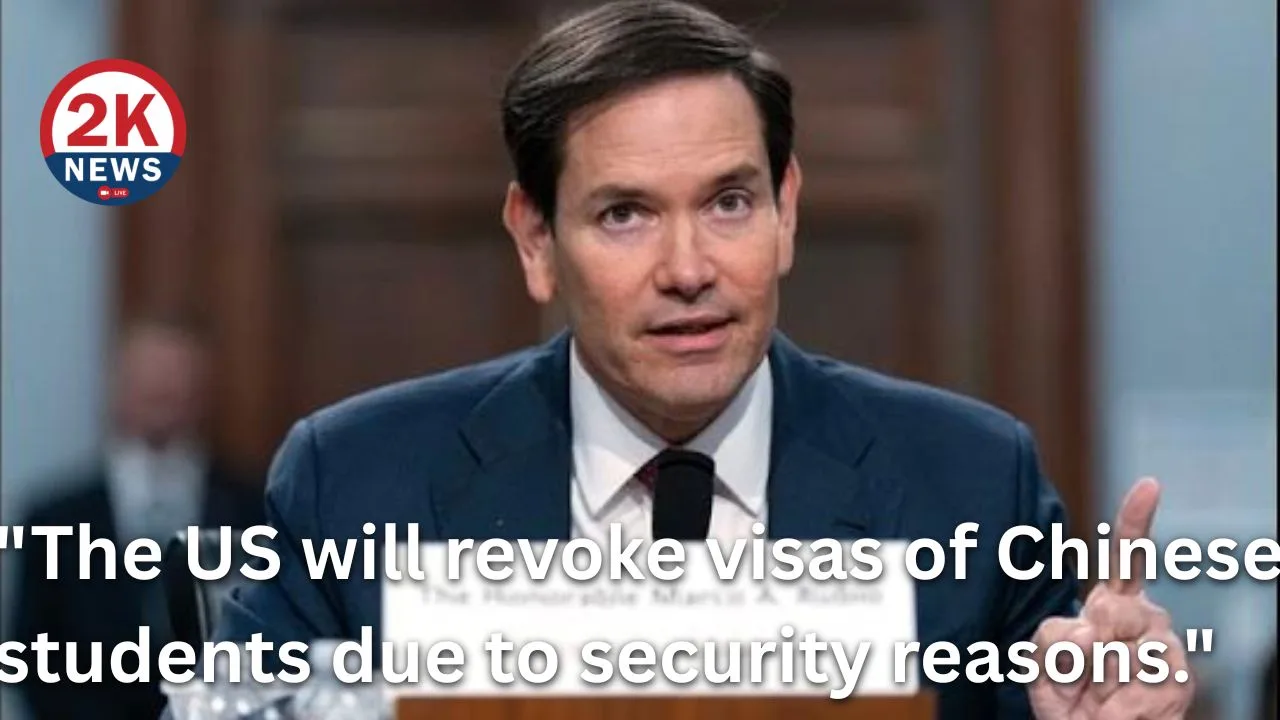Chinese students The United States government has recently announced a significant policy decision to revoke visas issued to Chinese students studying in the country. This move is primarily motivated by national security concerns, marking a notable shift in how the US views foreign students, especially from China. The decision has sparked widespread discussion and debate regarding its implications on education, diplomacy, and international relations.
“US Visa Revocation of Chinese Students: Security Concerns Explained” For many years, the US has been a preferred destinUS visa revocation, Chinese students visa, US-China relations, national security, visa cancellation, Chinese student restrictions, US education policy, espionage concerns, student visa news, international students USA r international students, with Chinese students comprising the largest group among them. These students contribute significantly to American universities, both culturally and economically. However, in recent years, concerns have been growing within US security agencies about potential espionage activities linked to foreign students, particularly those from China. Intelligence reports have suggested that some students could be involved in gathering sensitive information or engaging in activities that threaten US national security. Chinese students
r international students, with Chinese students comprising the largest group among them. These students contribute significantly to American universities, both culturally and economically. However, in recent years, concerns have been growing within US security agencies about potential espionage activities linked to foreign students, particularly those from China. Intelligence reports have suggested that some students could be involved in gathering sensitive information or engaging in activities that threaten US national security. Chinese students
“Why is the US Revoking Visas of Chinese Students?” In response to these concerns, the US government is tightening its visa policies. Revoking visas of Chinese students is seen as a preventative step to mitigate risks associated with espionage or intellectual property theft. This policy change means that Chinese students who are perceived to pose a threat or whose backgrounds raise red flags could have their visas canceled, preventing them from entering or continuing their studies in the US.
The decision comes amid increasing tensions between the US and China, not just in the realm of education but also in trade, technology, and military domains. Both nations have been engaged in a complex rivalry, and policies like this visa revocation contribute to the broader geopolitical struggle. While the US claims its actions are based on legitimate security concerns, China views such moves as discriminatory and damaging to academic collaboration.
The revocation of visas could impact thousands of Chinese students currently enrolled in American educational institutions. Many of these students are pursuing advanced degrees in science, technology, engineering, and mathematics (STEM) fields, which are critical for innovation and research. The policy might lead to a decrease in the number of Chinese students applying to US universities, affecting the diversity and talent pool of American campuses.
Furthermore, universities in the US might face financial challenges due to reduced enrollment from Chinese students, who often pay higher tuition fees compared to domestic students. The academic community has expressed concern that such policies could undermine the spirit of international education and collaboration, which are vital for global progress and mutual understanding. Chinese students
“Impact of Visa Revocation on Chinese Students and US Education”
On the other hand, supporters of the US government’s decision argue that protecting national security must be a top priority. They contend that while most international students contribute positively, a small fraction may exploit educational opportunities to conduct espionage or steal intellectual property. By revoking visas, the US aims to safeguard its technological and military advantages and prevent unauthorized access to sensitive information.
The US Department of State and security agencies are expected to enforce this policy rigorously. Visa applicants from China may face increased scrutiny during their application process, including more thorough background checks and interviews. Existing students might be required to provide additional documentation to prove they do not pose any security risks.
The impact of this policy will likely extend beyond education and security. It may further strain diplomatic relations between the US and China, as Beijing condemns the move as unfair treatment of Chinese nationals and an obstacle to academic exchange. Chinese officials may retaliate by imposing restrictions on American students or researchers in China, potentially disrupting collaborative projects and scientific research. Chinese students
In summary, the US decision to revoke visas of Chinese students due to security reasons reflects growing concerns about national security and espionage linked to foreign nationals. While the move aims to protect sensitive information and technological assets, it also raises questions about fairness, academic freedom, and international cooperation. The policy’s full impact will unfold over time, influencing educational institutions, students, and the broader US-China relationshi .Chinese students
A
























One thought on “The US will revoke visas of Chinese students due to security reasons.”